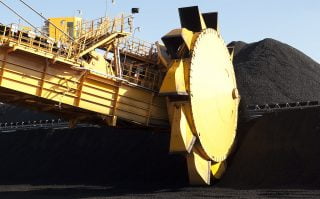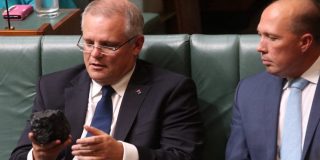Listening to the public environmental discourse at the moment I hear a lot about climate change and little else. The reality is that climate change is but one of many serious environmental challenges confronting the world today.
My attention was drawn to this by a 2009 paper “A Safe Operating Space for Humanity”. A collaborative effort by a group of leading earth scientists, the paper identified nine planetary boundaries that, once crossed, could impact very negatively on the planet’s capacity to provide for humanity. The boundaries are:
- rate of biodiversity loss;
- climate change;
- nitrogen cycle;
- phosphorous cycle;
- ozone depletion;
- chemical pollution;
- ocean acidification;
- freshwater use;
- change in land use.
Crossing these boundaries will likely lead to non-linear change, that is sudden, massive change. For two of these boundaries we are not sure how to measure where the boundary lies (aerosol loading and chemical pollution), three we have already crossed (biodiversity loss, nitrogen cycle and climate change) and we are rushing headlong toward the boundaries on the rest.
Take ocean acidification, the forgotten twin of climate change. The oceans absorb around 30% of the carbon we emit, and with the massive increase in carbon emissions since the Industrial Revolution, the oceans have become more acidic (or technically less alkaline). The more acidic the water the softer the shells of shellfish and the less effective the bonding mechanisms of many corals. Quite apart from any warming of the oceans this will likely have dramatic ramifications. Shellfish are an important part of the diets of many people, especially many of the world’s poor. Acidification of the oceans will see fewer shellfish and less food security. Or think of what will happen if we lose the microscopic shellfish at the base of the oceanic food chain. The effects are likely to cascade right up the food chain. Then there’s the loss or weakening of the world’s reefs, which are home to 25% of the oceans sea creatures and an important buffer against storms. Again, the food security as well as the physical security of the poor will be degraded.
And this is just one of nine identifiable planetary boundaries. Crossing them means a massive challenge to the earth’s capacity to provide for us. With the global population expected to reach 9-10 billion by 2050 we can’t sweep these issues under the carpet.
So should we stop focussing on climate change? Not at all. We just need to add these other boundaries into the mix. In each instance it will be the world’s poorest who do he tleast to create the problem but suffer most from it. Affluent people like me can always buy ourselves out of trouble – in a world with rising food prices and a more dangerous climate I will always be among the billion or so affluent people who can afford the higher prices and adapt to the new circumstances, but the 2-3 billion at the bottom of the wealth pile will not have this luxury.
It also strikes me that recognising these planetary boundaries might be a good way to defuse some of the heat in the climate debate. For anyone with doubts about the reality of climate change there are eight other challenges to focus on, and one of them, ocean acidification, is driven by the same thing as climate change – rising levels of carbon dioxide. So even if you’re not convinced on global warming, we need to reduce carbon emissions if we are to preserve the ecological services of the oceans.
For the planetary boundaries paper and descriptions of each of the boundaries go to http://www.stockholmresilience.org/research/researchnews/tippingtowardstheunknown/thenineplanetaryboundaries
See also the TED talk below





As usual Scott you seem to be across the big picture. I see the fundamental problem is that business has focus on continual growth to create more money. Money seems to be able to secure influence , in turn politics is obsessed with influence and is only focused staying in power three to four years at a time . So complex long term big issue have very little interest to both business or politics. Hopefully people like yourself will keep banging the drum and more people will actually THINK about more than what’s on tv next week.